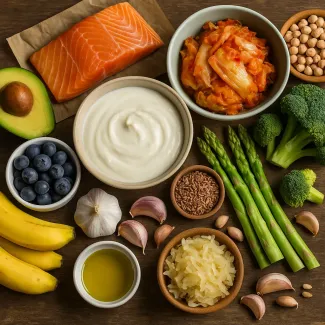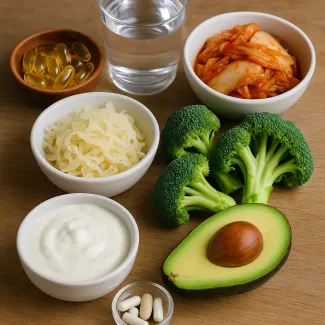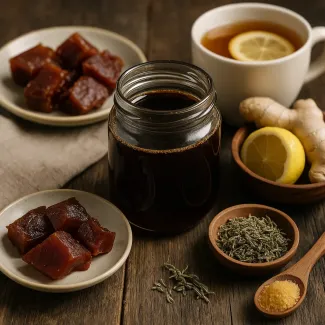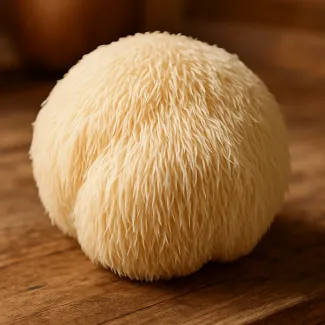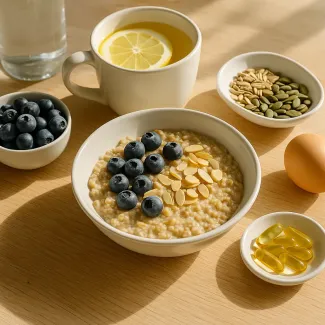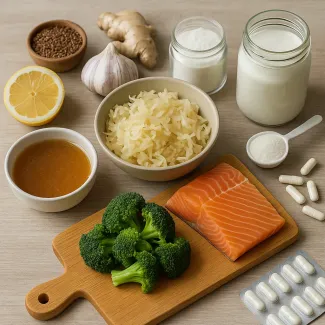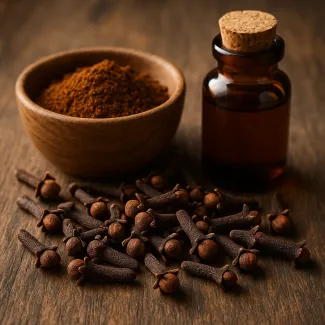
Exploring the surprising role of cloves in supporting antibiotics
Understanding the connection between cloves and antibiotic strength
The use of cloves as a natural aid in human health has been recognized for centuries. Recent interest focuses on how cloves can complement antibiotic treatments and possibly enhance their effectiveness. In an era where antibiotic resistance is a growing concern, exploring natural solutions that can work alongside conventional medicine is increasingly important. Cloves, with their rich profile of bioactive compounds, offer exciting potential in this regard. This article explores how cloves may support antibiotic action, how to integrate them into daily habits, and what science says about their role in modern health strategies.
What makes cloves a powerful natural remedy
Cloves (Syzygium aromaticum) are well known for their strong antibacterial properties. They contain eugenol, a compound responsible for much of their medicinal value. Eugenol exhibits notable antimicrobial activity, which may assist the body in combating harmful pathogens. In traditional medicine, cloves have been used to address infections, relieve pain, and support digestion. Their high concentration of antioxidants further contributes to their health-supportive effects. When combined with antibiotic therapies, these properties may offer an additional line of defense, supporting the body's natural ability to recover from infections.
How cloves interact with antibiotics
Modern research suggests that clove extracts could enhance the action of certain antibiotics. The synergy between clove components and antibiotics may help weaken bacterial defenses, making antibiotics more effective against resistant strains. Studies indicate that cloves may disrupt bacterial cell walls and interfere with biofilm formation, two mechanisms that bacteria use to protect themselves from antibiotics. This means that consuming cloves in appropriate amounts could help improve the efficacy of prescribed antibiotics, although they should never replace medical treatments.
Practical ways to include cloves in your diet
Clove-infused teas and drinks
One of the easiest ways to integrate cloves into daily life is through herbal teas. Boiling a few whole cloves in water creates a warming infusion that not only offers flavor but also delivers beneficial compounds. Combining cloves with cinnamon or ginger enhances the drink's taste and health potential. Such teas can be consumed regularly, especially during times of infection or immune challenges.
Cooking with cloves
Cloves can also be used in savory dishes and baking. Adding ground cloves to soups, stews, or marinades introduces subtle warmth and medicinal value. Whole cloves can be inserted into roasts or rice dishes, slowly releasing their flavor and active compounds during cooking. Regular use in meals is a simple way to obtain their antimicrobial benefits.
Clove oil (with caution)
While clove oil is highly concentrated and rich in eugenol, it should be used carefully. A few drops diluted in carrier oil may be used externally to support skin health, but internal use should be supervised by a healthcare provider. Misuse of concentrated clove oil can lead to adverse effects.
Scientific studies on cloves and antibiotics
Laboratory evidence of synergy
Numerous in vitro studies show that clove extracts can enhance the action of antibiotics against common pathogens such as Staphylococcus aureus, E. coli, and Pseudomonas aeruginosa. The combination often results in a lower minimum inhibitory concentration (MIC) of antibiotics, meaning smaller doses are needed to achieve the same effect. This supports the idea that cloves could play a valuable adjunct role in fighting infections.
Focus on multidrug-resistant bacteria
With the rise of multidrug-resistant bacteria, scientists are seeking solutions that can support existing treatments. Research suggests that clove compounds may inhibit bacterial mechanisms that lead to resistance, such as efflux pumps and biofilm development. These findings encourage further investigation into how natural remedies like cloves can contribute to public health strategies.
Health considerations when using cloves
Safe consumption guidelines
Although cloves are generally safe in culinary amounts, excessive intake can cause issues such as digestive discomfort or interact with medications. For individuals on anticoagulant therapy, high clove consumption should be avoided due to the potential blood-thinning effect of eugenol. It is always advisable to consult a healthcare provider before using clove supplements or large quantities for medicinal purposes.
Not a substitute for antibiotics
It is essential to stress that while cloves may support antibiotic therapy, they do not replace medical treatments for infections. Antibiotics prescribed by a doctor should always be taken as directed, and clove use should be considered as a complementary measure rather than a replacement.
Additional health benefits of cloves
Antioxidant power
Cloves are among the richest dietary sources of antioxidants. Their high ORAC (Oxygen Radical Absorbance Capacity) value means they can help neutralize free radicals, potentially reducing oxidative stress in the body. This antioxidant effect may contribute indirectly to better immune function and overall health.
Anti-inflammatory properties
Cloves contain compounds that help modulate the body's inflammatory response. By reducing inflammation, cloves may assist recovery from infection and support general well-being. This is particularly valuable when combined with the body's efforts to fight bacterial invaders.
Combining cloves with other natural supports
Ginger and cloves for immune health
Pairing cloves with ginger creates a powerful natural blend that supports immune function. Both spices have antimicrobial and anti-inflammatory actions, making them ideal partners in the kitchen or for homemade teas.
Cloves and honey mixtures
Another traditional remedy involves combining ground cloves with raw honey. This mixture may soothe the throat during infections and deliver antibacterial compounds directly to the mouth and throat tissues.
The role of clove supplements
When supplements might be considered
In some cases, clove capsules or standardized extracts are used to provide consistent dosing of eugenol and other active compounds. These are sometimes chosen when a stronger or more controlled intake is desired. However, choosing quality supplements and consulting a healthcare professional is key to safety.
Comparing whole cloves to extracts
Whole cloves used in cooking or tea provide a broader spectrum of plant compounds, whereas concentrated extracts focus on specific constituents like eugenol. Each form has its advantages depending on the intended use, but for general health support, whole cloves may offer better balance.
Tips for buying and storing cloves
To maximize the benefits of cloves, it is important to choose high-quality, organic sources. Whole cloves retain potency longer than ground forms. Store them in an airtight container away from light and heat to preserve their essential oils and flavor. Freshness directly impacts their antimicrobial properties.
Integrating cloves into daily wellness routines
Making cloves part of a daily health plan can be as simple as adding them to morning tea, using them in cooking, or keeping a small supply for making infusions during the cold and flu season. This ensures a steady intake of their beneficial compounds without overuse.
The future of cloves in health research
Researchers continue to study how cloves can contribute to fighting antibiotic resistance and supporting immune health. Ongoing trials aim to clarify the best ways to use cloves alongside standard treatments. As understanding grows, cloves may play an increasing role in integrative health approaches.
